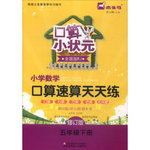题目内容
Her writing career ________ in her early thirties, when she wrote a novel about creatures from outer space.
- A.took up
- B.flew up
- C.took off
- D.flew off

 口算小状元口算速算天天练系列答案
口算小状元口算速算天天练系列答案Peter Rabbit is a character in various children’s stories written by Beatrix Potter(1866-1943). Peter Rabbit made his first appearance in 1902 in The Tale of Peter Rabbit. Peter doesn’t obey his mother’s orders and goes away. Mr.McGregor spots him and runs after him. Peter manages to escape, but not before losing his jacket and shoes, which Mr.McGregor uses to dress a scarecrow(稻草人). Peter returns home tired and ill.
In the Tale of Benjamin Bunny, first published in 1904, Peter’s cousin Benjamin Bunny brings him back to Mr.McGregor’s garden and they get back the clothes Peter lost in The Tale of Peter Rabbit. But after they gather onions to give to Peter’s mother, they are caught by Mr.McGregor’s cat. Benjamin’s father arrives and rescues them, but also blames Peter and Benjamin for going into the garden. In this tale, Peter displays fear about returning to the garden.
In the The Tale of the Flopsy Bunnies, first published in 1909, Peter has a small role and appears only briefly. He is grown up and his sister Flopsy is now married to Benjamin Bunny. The two are the parents of six little Flopsy-Bunnies. Peter and his mother keep a nursery garden and the bunnies come by asking him for spare cabbage.
In the Tale of Mr. Tod, first published in 1912, Benjamin and Flopsy’s children are taken away by Tommy Brock. Peter helps Benjamin run after Brock, who hides out in the house of the fox Mr. Tod. Mr. Tod finds Brock sleeping in his bed and as the two get into a fight, Peter rescues the children.
Peter makes cameo appearances(客串出场) in two other tales. In The Tale of Mrs. Tiggy-Winkle, first published in 1905, Peter and Benjamin are customers of Mrs. Tiggy-Winkle, a hedgehog(刺猬) washerwoman. In The Tale of Ginger and Pickles, first published in 1909, Peter and other characters from Potter’s previous stories make cameo appearances.
1. In The Tale of Peter Rabbit, Peter .
|
A.is caught by Mr. McGregor’s cat |
B.gathers onions to give to his mother |
|
C.runs into a scarecrow when escaping |
D.loses his clothes in Mr. McGregor’s garden |
2.In paragraph 4, the underlined part “the two” refers to .
|
A.Benjamin and Brock |
B.Peter and Benjamin |
C.Mr. Tod and Brock |
D.Peter and Mr. Tod |
3.What do we know about Benjamin Bunny?
|
A.He’s a father of six children |
|
B.He keeps a nursery garden with Peter |
|
C.His mother passes away when he’s little |
|
D.He saves Peter in The Tale of the Flopsy Bunnies |
4.According to the passage, Peter Rabbit .
|
A.hates Benjamin Bunny’s father a lot |
|
B.appears briefly in The Tale of Mrs. Tiggy-Winkle |
|
C.was worked into a story in the early 19th century |
|
D.plays a leading role in The Tale of the Flopsy Bunnies |
5.The author wrote the passage to .
|
A.introduce the character Peter Rabbit in Potter’s stories |
|
B.describe the various characters in Potter’s books |
|
C.show the influence of the Peter Rabbit series on children |
|
D.discuss Potter’s changes in her writing styles |